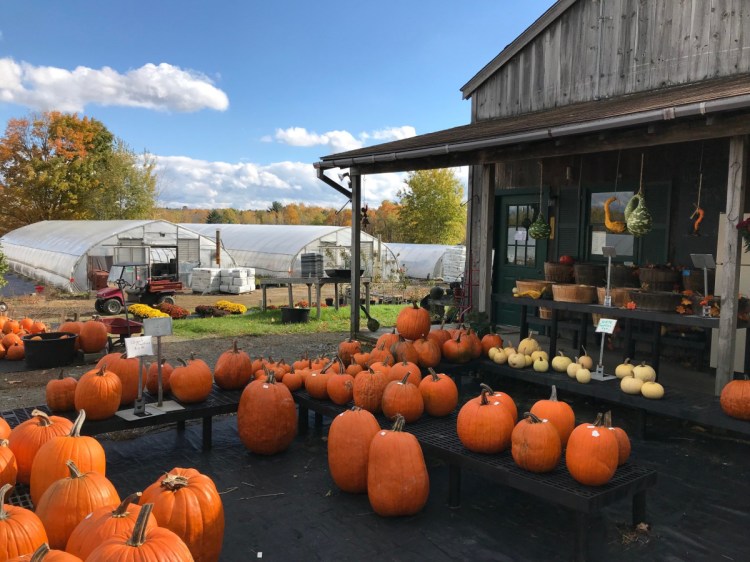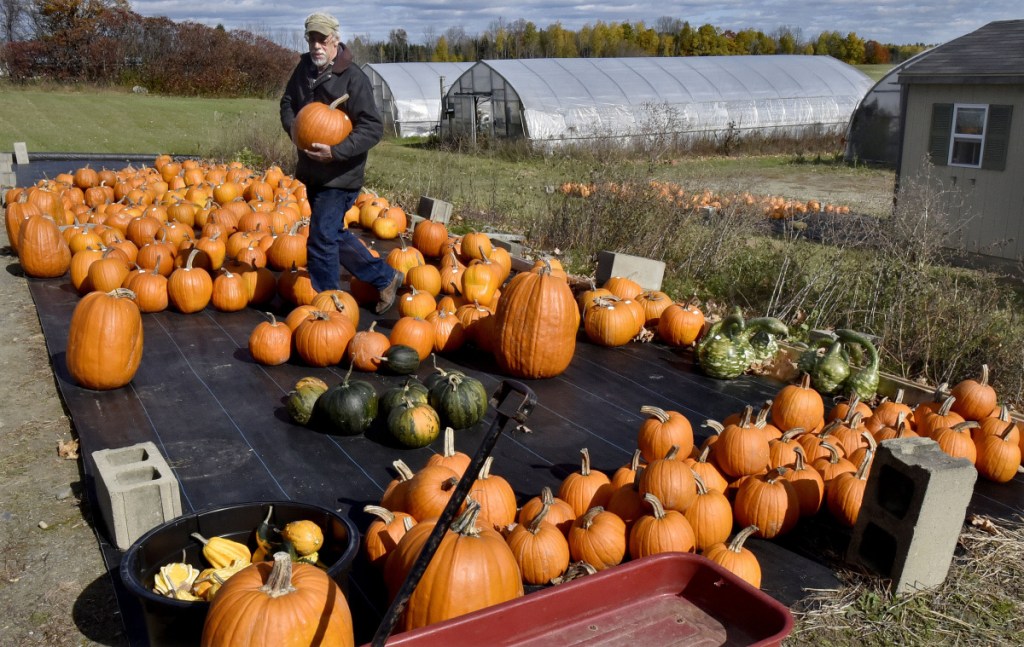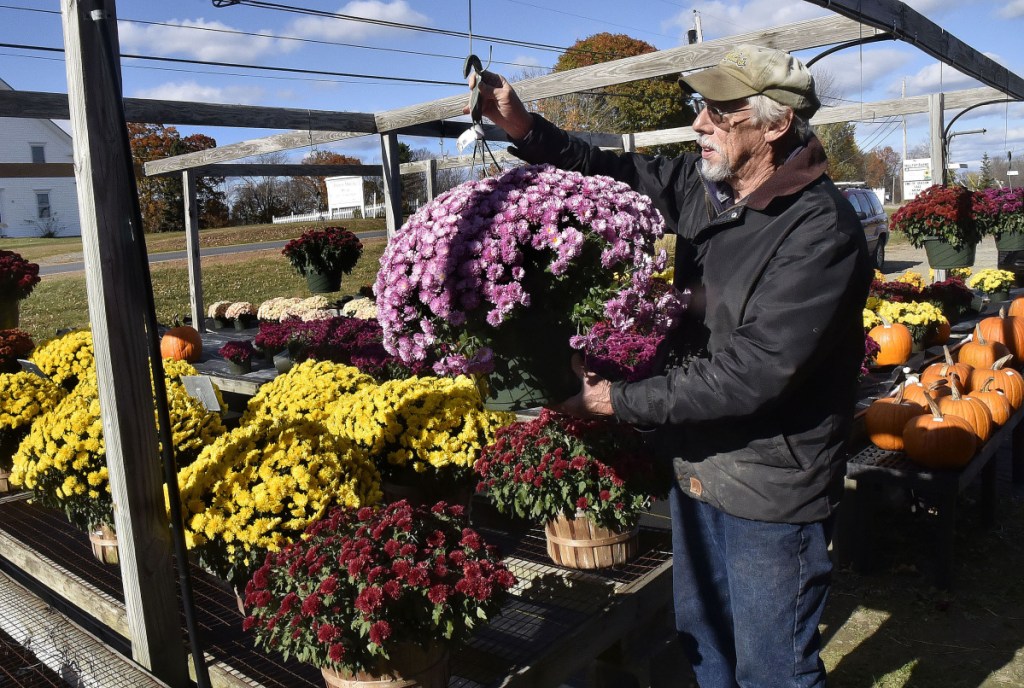FAIRFIELD — As more and more Maine municipalities signal their support for food sovereignty, Fairfield may join the trend Wednesday to exempt local food producers from certain state laws in a town-driven effort.
In June 2017, the State Legislature passed the Maine Food Sovereignty Act, which allows municipalities to create their own local ordinances governing direct food sales from producers to consumers. Under the law, the state will not enforce state food requirements in the case of direct producer-to-consumer sales such as a dairy farmer selling raw milk directly to a customer, in cities and towns with a local food sovereignty ordinance.
Over 40 Maine communities have adopted their own ordinance, according to an organization working to build the food sovereignty movement across the state. And Fairfield could be next.
The Fairfield Town Council will hold a public hearing on a draft “Local Food and Community Self-Governance Ordinance” at its Wednesday, Oct. 24, meeting and is scheduled to vote on the proposal Wednesday night.
“We, the People of the Town, have the right to produce, process, sell, purchase, and consume local foods thus promoting self-reliance, the preservation of family farms, and local food traditions,” reads the draft ordinance preamble.
“This ordinance had been out there. There’s a lot of municipalities that have adopted this,” Town Manager Michelle Flewelling said at the council’s Oct. 10 meeting, which included a workshop on the food sovereignty ordinance.
Flewelling said last week that the draft ordinance is a continuation of the town’s effort to promote “healthy, affordable food.” Rather than trying to reinvent the wheel, Flewelling said Fairfield turned to existing ordinance language used in other communities and tweaked it somewhat.
The organization Local Food RULES, founded in Hancock County where Maine’s food sovereignty push first gained traction several years ago, works to promote local control of food systems and has an ordinance template that closely resembles the draft proposal in Fairfield. According to the organization’s website, 43 Maine municipalities have enacted local ordinances as of late September — eight of them in Somerset County and one in Kennebec County.
Richard King, a Local Food RULES volunteer who owns a small goat farm in Liberty, said the food sovereignty movement is based on a philosophy of “neighbors feeding neighbors” through face-to-face sales that require “a level of trust.”
“This is not like I can open up a supermarket and put all my farm goods in it,” said King, who is now able to sell raw goat milk at his farm thanks to Liberty’s food sovereignty ordinance.
During the council workshop earlier this month, Councilor Aaron Rowden expressed support for the ordinance and called it an extension of a 2016 council resolution that recognized the importance of family farms, sustainable agriculture and food processing to the local economy.
Rowden also emphasized that federal food regulations still apply regardless of whether or not the town enacts a local food ordinance.
“I think that it is worth noting — for the record and for anybody who is watching or listening — that we as a town can never, ever, ever exempt anybody from federal law. So if there is some federal regulation involved that affects what you’re doing, we can’t give you permission to break that law,” Rowden said. “However, this is in my mind a great signal to the people of Fairfield from the town government that we will not stand in opposition to people being able to use their property for their own benefit and the benefit of their neighbors.”
Marilyn Meyerhans, owner of the Apple Farm on Back Road in Fairfield, said she is “a little conflicted” over the food sovereignty issue, in part because her farm sells cider through retail sales still subject to federal regulations regardless of what the town decides to do with the proposed ordinance. She also has concerns about the potential for food-related illness through a de-regulated direct purchase, and the possibility of a regulatory crack-down after such an event.
“If somebody gets sick, you’ve got a problem,” Meyerhans said about food sovereignty. “It won’t affect me, unless something bad happens.”
Meyerhans also said she doesn’t find the State of Maine to be overly-burdensome with its food regulations and, despite her concerns, does believe food sovereignty can help bolster smaller food operations.
The State Legislature also amended the food sovereignty law last October to ensure that meat and poultry products will continue to fall under state inspection and licensing requirements. That amendment came after the U.S. Department of Agriculture questioned the impact of the food sovereignty law on Maine’s state meat and poultry inspection and licensing program, putting that program in jeopardy and raising concerns from Maine meat producers at the time, as reported by the Portland Press Herald.
Egide Dostie, a third generation farmer and owner of Dostie Farm on Middle Road in Fairfield, wasn’t familiar with the town discussion about food sovereignty and didn’t think it will affect his 200-dairy-cow operation that provides milk to organic yogurt company Stonyfield Farm. He said some level of food regulation is important to ensure quality, but didn’t see anything wrong with smaller producers being able to sell some foods directly to consumers without being subject to state regulations.
“It won’t change for us, but maybe for some it will. That would be great,” said Dostie, who won’t be selling any raw milk from his farm even if the town allows it through the proposed ordinance.
Richard Freeman, who owns Hilltop Farm and Greenhouses just down the road from Dostie Farm, similarly wasn’t familiar with the town’s food sovereignty effort and didn’t think it would affect his business either way, but noted it is “something I would definitely support.”
Flewelling said that Fairfield’s proposed ordinance is a proactive attempt to support local food producers, and that the town wasn’t inspired to pursue the change by local producers or statewide advocates.
“It’s been on our list for a while,” she said.
If the council approves the ordinance Wednesday night, Fairfield would join other Somerset County towns Bingham, Moscow, Solon, Madison, Anson, Athens, Moose River and Starks in embracing local food sovereignty, according to the Local Food RULES website.
Matt Junker — 861-9253
Twitter: @mattjunker
Send questions/comments to the editors.





Comments are no longer available on this story